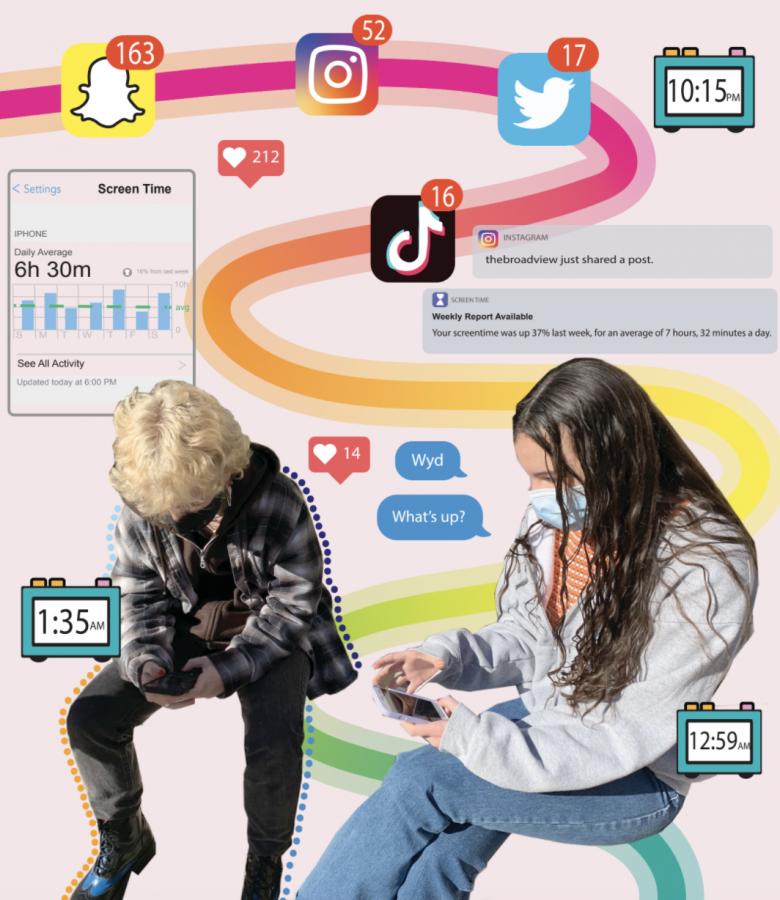Using less social media may be better than none at all
December 14, 2020
WEB EXCLUSIVE What started out as an easy way to connect with friends, follow influencers and meet new people can turn into an unhealthy obsession, with screen time adding up to multiple hours a day and taking time away from real-world activities, causing some teens to try to cut down on their social media time or delete time-zapping apps all together.
“If social media is interfering with actually living or interfering with you functioning and doing the basic stuff that we need to do in our life, it’s considered a problem,” child and teen therapist Rachel Greenberg said, “but there’s a lot of things that we do somewhat addictively that isn’t considered a problem.”
Social media can be an effective and safe way of maintaining communication with friends or loved ones due to social distancing during the COVID-19 pandemic, making cutting back on social media difficult for some.
“I use social media a lot to talk to my friends, and feel like I’m still in contact with them over shelter in place.” junior Sara Ramelot said, “Sometimes [social media] can be a lot, so I’ve been trying to not be on it as much.”
Remaining in contact with friends and family is the biggest reason why managing social media usage can be healthier than cutting it out completely, according to Greenberg. Deleting all social media apps rarely works and tends not to last long term.
“Do not pretend to cut it out but have an expectation of cutting back,” Greenberg said. “For some people that means deleting some of your apps and making real choices with your time.”
Choosing which social media apps to continue using and which ones to delete is a way of tailoring back the technological components drawing one’s attention. Setting out specific times to spend technology free can also help individuals manage social media usage.
“Create times a day when you’re away from the phone,” Greenberg said. “For example, the phone is in another room after 10 p.m. and the phone doesn’t come back out again until you are up and ready for your day.”
Adapting the way technology is used can also be tailored into a healthy habit. Listening to music, using meditations apps such as Calm, and journaling on apps like Atlas are good alternatives to social media, according to Howard Levin, Director of Educational Innovation and Information Services.
“I believe in using technology to access real world news and knowledge,” Levin said. “My concern is how to help students, teachers and adults not just cut the cord but to more appropriately use technology to communicate legitimately and research legitimately.”
When looking for real-world alternatives for technology usage, Greenberg suggests thinking about an individual’s favorite childhood activities like dancing to music, playing board games or painting to keep entertained.
“Anything that made you happy as a little kid is a great thing to try again,” Greenberg said. “Be creative and challenge yourself to think about the activities you used to do when you weren’t attached” to a phone.










